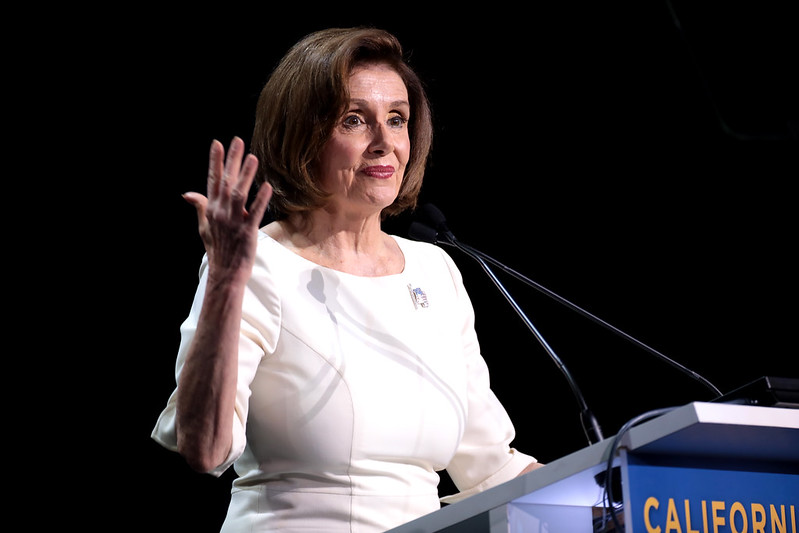
Last month Nancy Pelosi called the House back into session to pass a bill framed as the latest round ofcoronavirus emergency relief. But the bill known as the Health and Economic Recovery Omnibus Emergency Solutions Act is just a longstanding wish list of left wing agenda items.
The Pelosi “HEROES Act” passed along party lines by a vote of 208–199 but has attracted little consideration in the Senate, where Majority Leader Mitch McConnell (R-Ky.) rightly declared the bill dead on arrival. The White House joined him, noting Pelosi’s use of emergency relief legislation is a disguise to push through a wish list of progressive priorities.
With a staggering cost of $3 trillion, Pelosi’s HEROES Act contains several financial services provisionsunrelated to COVID-19 relief:
Suppression of negative credit reporting
Suppression of negative information in credit reports and in credit scores will have lasting consequences that overshadow what little economic bump politicians can exhort from consumers. By proposing to reduce the accuracy of information in credit reports, Democrats will punish borrowers who need access to credit now more than ever and lenders who will be unable to appropriately measure a barrower’s credit standing. Congress purposefully omitted a similar provision in the CARES Act in March.
Less accurate credit reports can increase the cost of credit through higher interest rates on everyone. The increased rates would be caused by the increased risk of default that stems from the ambiguity of information in the credit score. This Democrat proposal to suppress negative information will reduce the amount of credit available to borrowers as lenders become more cautious when analyzing reports for authenticity. For these reasons, the proposal is directly opposed by Americans for Tax Reform and other free market organizations.
Taxpayers fleeced to pay for $10,000 in student loan forgiveness
Different from the temporary pause of loan repayments, interest accrual, and default collections in the CARES Act, “forgiveness” will punish students who have worked hard to re-pay their student loans, receive merit-based scholarships, or work part-time in college to stay ahead of tuition payments.
This policy was a centerpiece of both Senator Bernie Sanders’ (D-Vt.) and Senator Elizabeth Warren’s (D-Mass.) unsuccessful 2020 presidential campaign platforms. Especially after the CARES Act provisions, this extension of past failures has nothing to do with coronavirus relief.
Suspension of the TCJA $10,000 SALT cap, which will force low tax states to subsidize high tax, big government blue states
One of the most partisan aspects of the bill is the provision to lift the State and Local Property Tax deduction cap for two years. The cap was a part of the 2017 Tax Cuts and Job Act, allowing taxpayers to deduct up to $10,000 from their federal tax bill. Removing the SALT cap has long been a progressive priority since Donald Trump signed the tax cut into law. The Dem proposal would force low tax states to subsidize high tax states. Rather than govern responsibly and reduce the tax burden, big spending political machines in blue states want to fleece the red states.
Distribution of $5 billion in Community Development Block Grants by Department of Housing and Urban Development
The provision allocates $5 billion for community development block grants, HUD’s largest program. Historically, these grants have provided abysmal results. Chairwoman of the House Financial Services Committee, Maxine Waters (D-Calif.) has long prioritized CDBGs, but over the years the program has been viewed as “little more than a congressional patronage tool” because of Congress’ lack of oversight. The HEROES block grant directive uses the current crisis to provide more aid to state and local governments who created their own problems through fiscal mismanagement and has nothing to do with the healthcare emergency.
Directive for Federal Reserve to purchase 10-year bonds from state, tribal, and territory municipalities
H.R. 6800 suspends a rule that municipal bonds must mature in six months and be backed by the municipalities’ tax revenues to be purchased by the Federal Reserve. This is a concerning part of the bill’s “aid” because the Fed has already purchased $500 billion of municipal bonds earlier this year when it expanded its municipal liquidity facility and has not directly purchased state and local government debts since the 1930s. The requirement to make more large-scale bond purchases, $915 billion in total, at a 10 year maturity (20 times longer than previously acceptable) exposes the lender of last resort to unprecedented risk.
That risk comes not only from the current challenges posed by COVID-19, but from the structural mismanagement of city finances and state pension systems. This Act would bail out mismanaged cities and encourage other cities to load up on debt assuming the Federal Reserve will step in again. If in 10 years municipalities cannot pay the principle, then those defaults could cause a systematic shock to the Fed’s balance sheet and the country’s financial system. All of this punishes states who have responsibly managed their finances assuming the Federal Reserve would not serve as back up.
Taken together, these measures exploit the current crisis to enact long-term policy goals of the Democratic party. The provisions in the HEROES Act are more concerned with furthering a partisan agenda than actually helping those in need.

